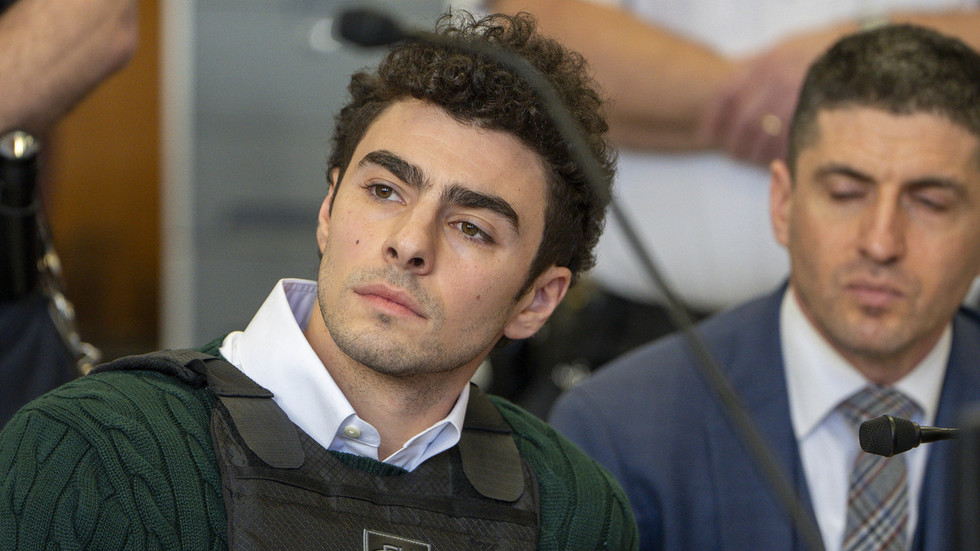The UN’s top relief official warned on Wednesday that the global humanitarian system has reached breaking point, with funding cuts forcing life-or-death decisions over which aid programmes to sustain and which to shut down.
Tom Fletcher, Under-Secretary-General for Humanitarian Affairs, told reporters at a briefing in New York that the current crisis was the most severe challenge to international humanitarian work since World War II.
“We were already overstretched, under resourced and literally under attack, with last year being the deadliest year on record to be a humanitarian worker. But it is far tougher for the 300 million plus people who we serve,” he said.
“The pace and scale of the funding cuts are a seismic shock to the sector … many will die because aid is drying up. Right now, programmes are shutting down, staff are being laid off, and we are being forced to choose which lives to prioritise.”
Aid disruptions, rising needs
Humanitarian crises are unfolding against a backdrop of instability, rising conflicts, climate shocks and economic downturns that have left millions more in need of assistance.
However, rather than an increase in support, the UN and its partners are facing deep funding shortfalls, forcing tough decisions.
Mr. Fletcher revealed that in February alone, 10 percent of humanitarian non-governmental organization (NGO) workers were laid off due to funding gaps, while UN agencies are being forced to scale back life-saving operations across multiple countries.
“For the people we serve, these cuts are not abstract budget numbers – they are a matter of survival,” he stressed.
Navigating through the storm
Mr. Fletcher, who also heads the Inter-Agency Standing Committee (IASC) – the global consortium of all agencies and organizations engaged in humanitarian work – said he had put forward a 10-point plan that focuses on two core actions: regrouping and renewal.
Regrouping will involve prioritising life-saving assistance, streamlining operations, and cutting back programmes that can no longer be sustained under current funding constraints.
Renewal will focus on reforming the humanitarian system to improve efficiency, build new partnerships, and find alternative funding sources.

UN Photo/Evan Schneider
Tom Fletcher, Under-Secretary-General for Humanitarian Affairs and Emergency Relief Coordinator, briefs journalists at UN Headquarters, in New York.
Strengthening local leadership
A key element of the plan is a shift toward more local leadership.
Mr. Fletcher has instructed humanitarian country teams to prioritize funding for local and national organizations, ensuring that those closest to the crises have more control over resources.
“We must shift power to our humanitarian leaders in-country and, ultimately, to the people we serve,” he emphasised.
Tough choices ahead
He acknowledged that many of the upcoming decisions will be painful, as vital programmes will inevitably be cut. He urged humanitarian organizations to be “ruthless” in eliminating inefficiencies and to focus only on the most critical interventions.
Under the plan, UN humanitarian coordinators in crisis-affected countries are required to submit revised strategies by Friday, outlining how they will prioritise urgent life-saving actions while scaling down or discontinuing activities that cannot be maintained.
At the same time new funding sources must be found and the humanitarian system will have to reimagine what it does and how.
“Our mission remains clear: to save as many lives as we can with the resources we have – not the resources we wish we had,” Mr. Fletcher said.
Where next?
Latest news
Read the latest news stories:
- Surges in Violence in Haiti Push Basic Services to the Brink of Collapse Wednesday, March 12, 2025
- United Nations New Efficiency Initiative is Aiming for Structural Changes to Operations Wednesday, March 12, 2025
- Energy is a Catalyst for Peace Between Israel and Gaza Wednesday, March 12, 2025
- UN Chief Launches New Initiative as World Faces Growing Challenges Wednesday, March 12, 2025
- Gaza Counts Costs of Catastrophic Impacts of Israeli Bombardment on Healthcare Wednesday, March 12, 2025
- ‘Anxiety, paranoia, fear’: The consequences of digital violence against women Wednesday, March 12, 2025
- World News in Brief: Gaza aid ‘unravelling’, funding cuts in Ukraine, concern over Syria aid access, Duterte in ICC custody Wednesday, March 12, 2025
- Humanitarian system at breaking point as funding cuts force life-or-death choices Wednesday, March 12, 2025
- Human Rights Council: Significant increase in child victims of trafficking Wednesday, March 12, 2025
- UN launches gender equality plan: ‘We’re at a turning point’ Wednesday, March 12, 2025
Link to this page from your site/blog
Add the following HTML code to your page:
<p><a href="https://www.globalissues.org/news/2025/03/12/39318">Humanitarian system at breaking point as funding cuts force life-or-death choices</a>, <cite>Inter Press Service</cite>, Wednesday, March 12, 2025 (posted by Global Issues)</p>… to produce this:
Humanitarian system at breaking point as funding cuts force life-or-death choices, Inter Press Service, Wednesday, March 12, 2025 (posted by Global Issues)

 2 weeks ago
7
2 weeks ago
7










 English (US) ·
English (US) ·